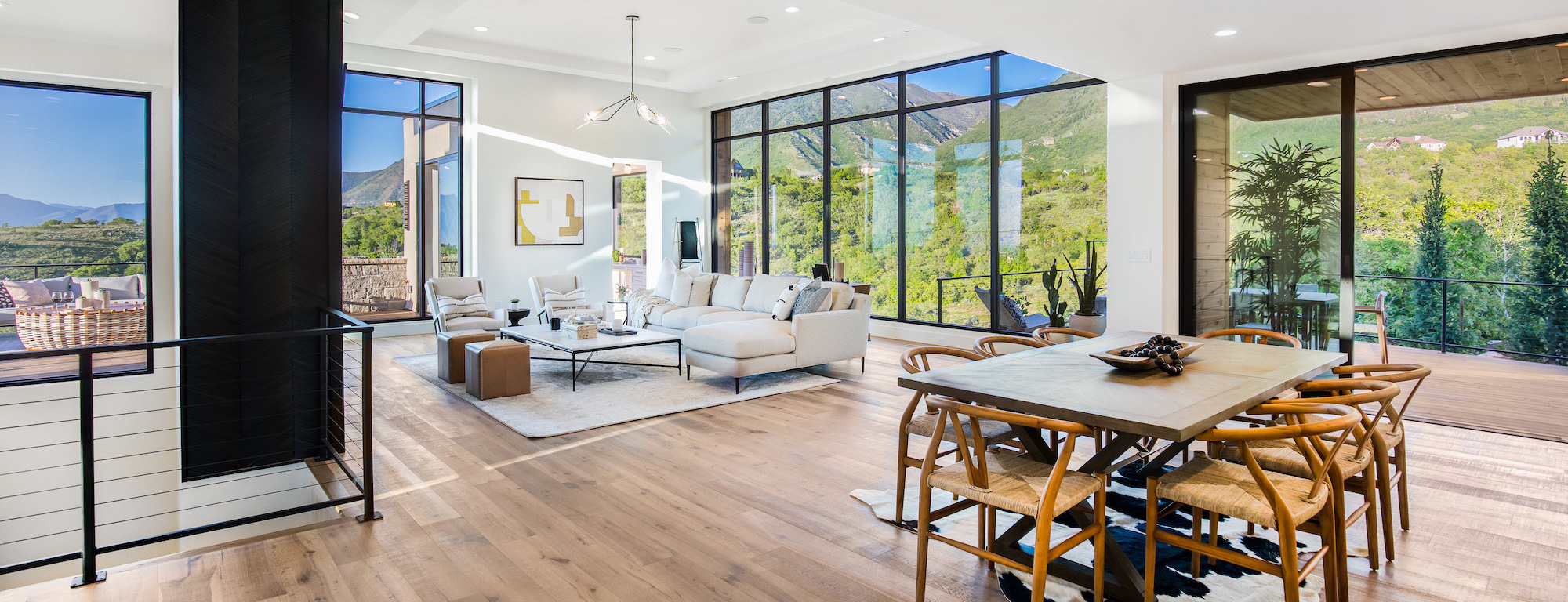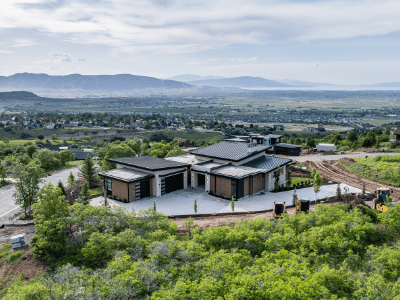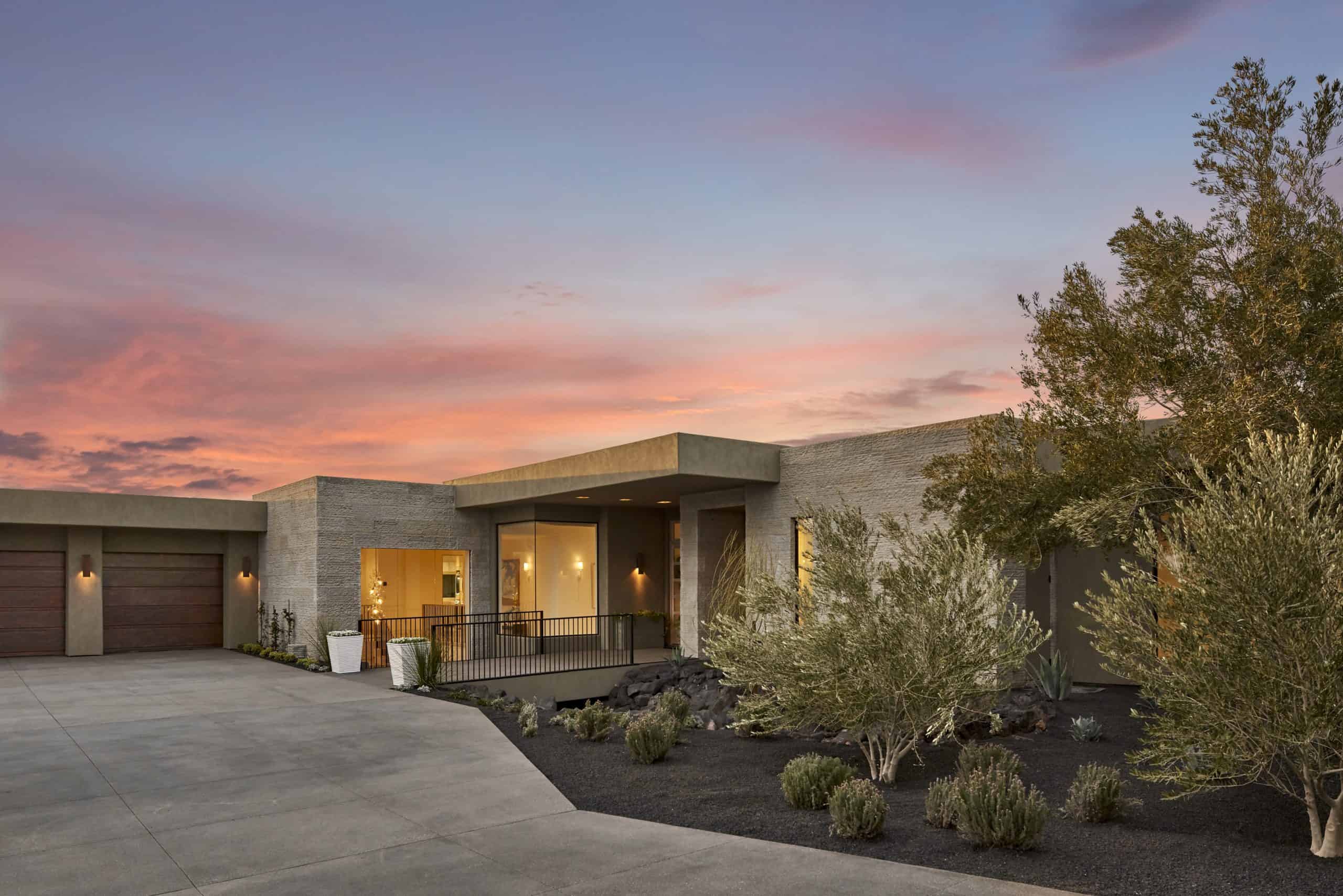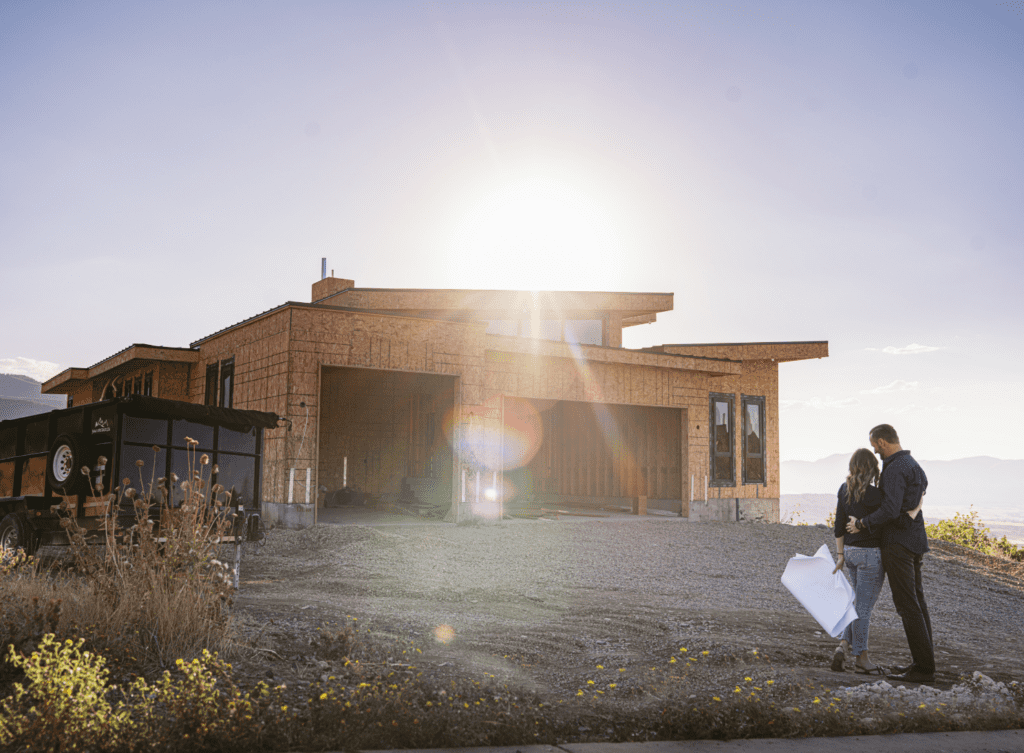
One of the most common questions we receive from those seriously considering building a custom home at Summit Creek is, ‘How long will it take to build my custom home?’
Clients often hear oversimplified or even sugar-coated answers, like ‘about twelve months’ or ’18 months.’ However, the truth is a bit more nuanced. To understand accurately, it’s essential to first familiarize yourself with the basic stages of the building process.
How Long Does It Take To Build A Custom Home? The “Quick Answer”
Depending on where you live, a quick google search will answer the question, “how long does it take to build a custom home” you will get an answer anywhere from 8-24 months.
The most honest ‘quick answer’ we can give is 15–36 months if you are starting from scratch with no plans. We know that is a big range, but we don’t want to mislead you. Keep reading if you want to understand how to save time and why this range is so big!
4 Stages of Custom Home Building
The construction of a custom home encompasses numerous stages. An experienced builder might view the four stages outlined below and consider them an oversimplification – and they would be right! However, these four stages serve as a useful framework for understanding the timeline involved in building a custom home.
Stage 1: Planning and design (Est. 3–12 Months)
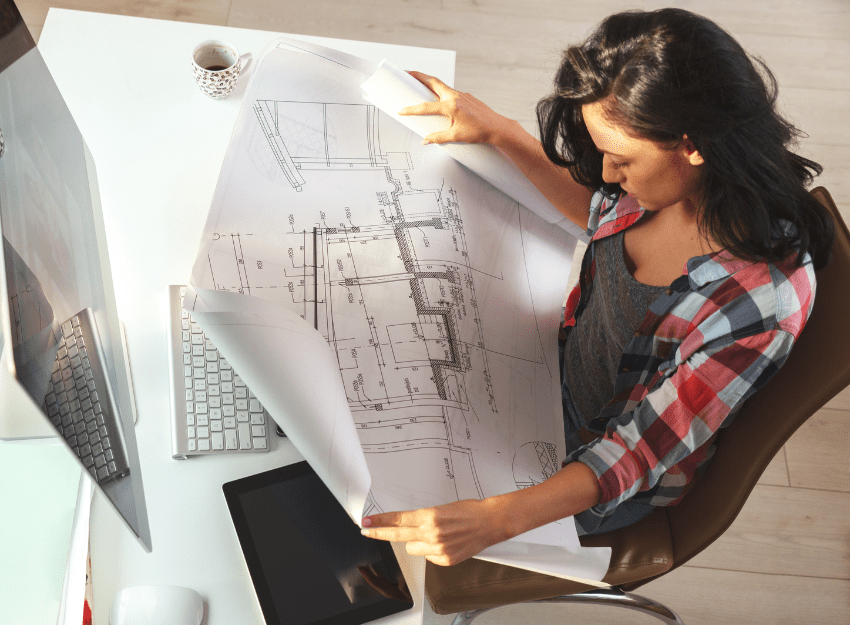
Planning and design can be the most enjoyable (and sometimes stressful) stages of the custom home construction process. This is where you work with your architect to make sure your dream home is in fact just that! Below are some reasons why this phase can take longer than expected.
Client Decision Making
Often, clients building a custom home choose to take their time during the planning phase. Many recognize the importance of this stage, understanding it’s crucial to meticulously refine their vision before proceeding. While some clients have a clear idea of what they want from the outset, others may require multiple iterations to feel confident enough to commence the construction process.
Delays in Professional Services
The availability of architects when building your home can vary greatly with the market’s condition. At times, architects may be backlogged for months. Additionally, high-end homeowners often desire specific architects who may have long waiting lists. Consequently, there’s no guarantee that your preferred architect will be immediately available.
Stage 2: Securing Financing (1–6 Months+)

One of the most important aspects of building a custom home is making sure you have enough capital to fund the project from start to finish. Oftentimes, it is a good idea to set aside cash for unforeseen expenses and to keep construction going in the event of unforeseen circumstances. But for most, financing will be necessary to bring the project to completion.
6 Common Financing Issues
Unanticipated “Shopping Around”
Oftentimes, people don’t anticipate how time-consuming the process can be to find a loan for their custom home, especially when encountering a conservative lending market. There are numerous lender options available who aim to tailor the numbers to your needs, and it’s advisable to position yourself with multiple options.
However, be aware that the process of getting vetted and approved can be time-consuming and requires effort to gather documentation and provide assurance to the bank that you will be able to repay the loan with interest. In many cases, a builder won’t begin the building process until financing is secured. Because of this, the necessary process of shopping around and securing financing for your project can delay your construction project!
Cost Overruns
Cost overruns are exactly what they sound like, the project ends up costing more than what was initially planned or budgeted. Changes in plans, unexpected construction issues, and material cost fluctuations can lead to cost overruns that can strain the budget and require additional financing.
Because your banker based the original loan on the original costs, the bank may require additional approvals and vetting to grant more funds for the project. This process can be time consuming, and may delay progress on your project.
Interest Rate Changes
Between September of 2021 and October of 2022, interest rates more than doubled from approximately 2.88% to 7.08%. If you were building a $1.5m home, and took out a loan of $1m dollars in September of 2021, you would have been anticipating a payment of approximately $4,400 per month. But here’s the catch – the long term financing interest rate almost always is not locked in until the home is completed.
So, in the example above, what was expected to be a $4,400/month payment was now going to be approximately $6,700/month. Yikes! These types of changes can delay or even halt the construction process while the client tries to figure out how they can cover the cost of the home once it is completed, or even attempt to sell the project to someone else who can finish it.
Appraisal Issues
When you seek financing for your custom home project, the bank will typically consider the appraised value of the finished project based on the plans. If the appraised value is lower than the estimated construction costs, it’s likely that the owner will need to contribute more funds to complete the project. Depending on the owner’s financial position, obtaining additional funds may take time and delay the project.
Stage 3: Permitting (1– 6 Months)
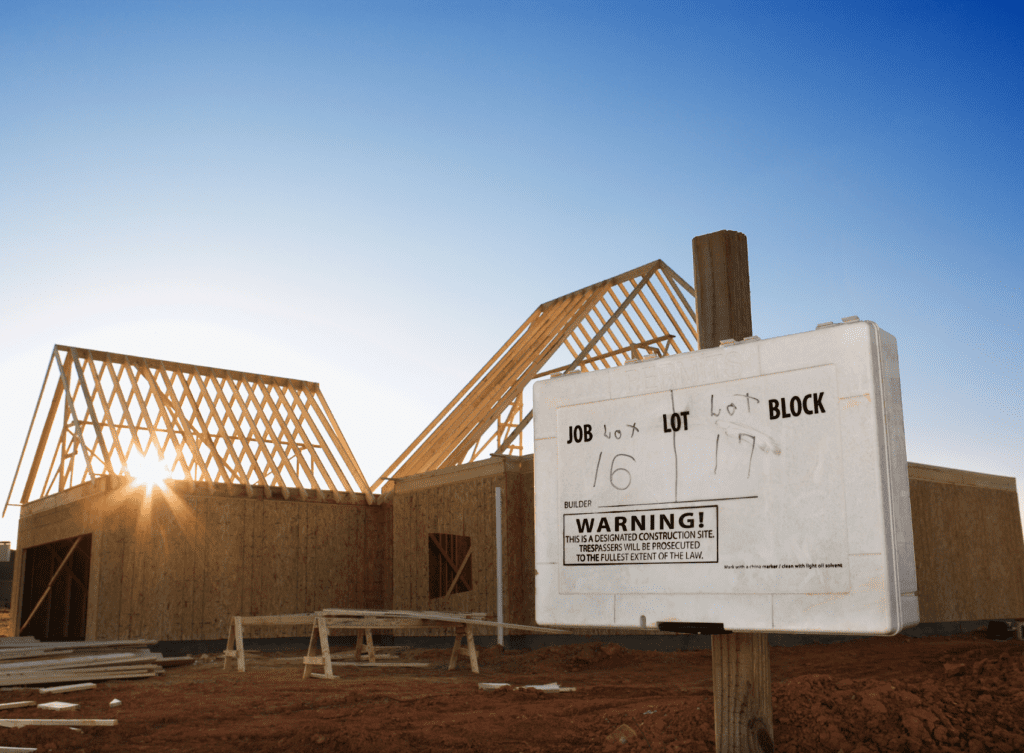
When building your custom home, you’ll need a building permit from the city you are building in. The process for obtaining a permit can vary from city to city, so it’s best to inquire with city officials about the typical duration of the permitting process before you begin construction. It’s also advisable to hire a builder who has experience with the permitting process in your city.
While the process to obtain a permit shouldn’t take longer than 30 days, in some cities, it can take as long as 3-6 months. This is a crucial step in the building process and should not be overlooked! Get in touch with your city’s permitting office to get started on this right away!
Stage 4: Construction (10–18 Months)
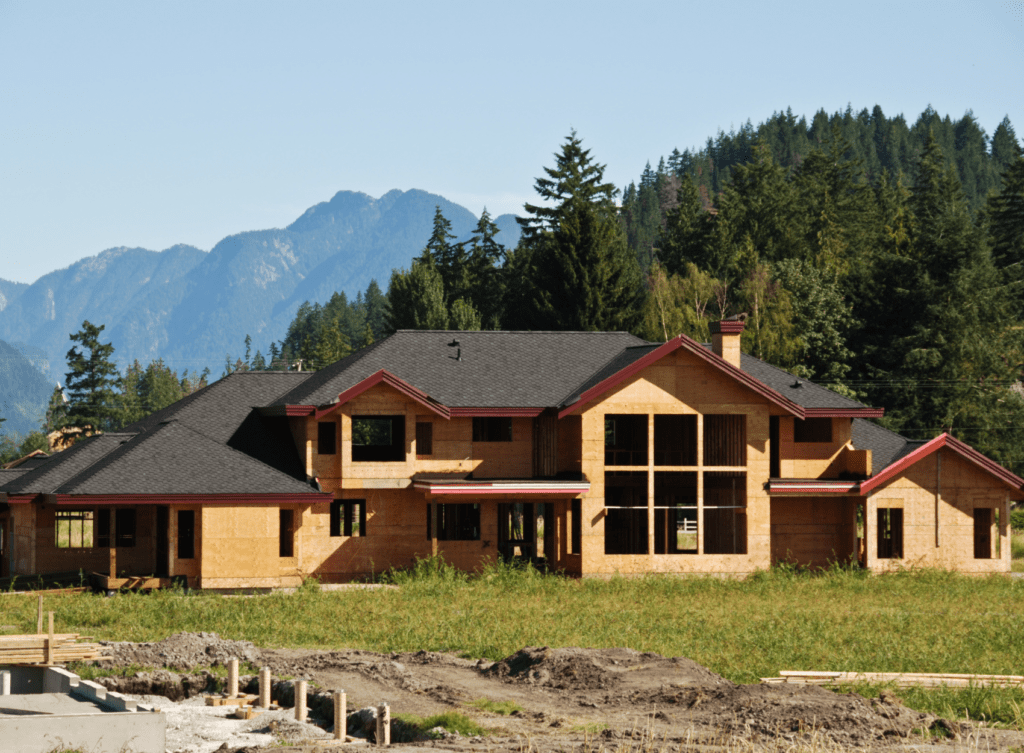
Homes get built every day. New home construction is ‘normal,’ but that does not mean it is easy, simple, or templated by any means! In reality, every home presents unique challenges that need to be overcome. Here are common construction delays that can have a big impact on how long your construction project will ultimately take.
Weather Conditions
Perhaps you’ll have a particularly heavy winter, causing issues with heavy equipment and construction materials. Or maybe the hottest summer on record will necessitate subcontractors to take frequent breaks.
These types of delays are usually out of the builder’s control, and it’s typically not in the client’s best interest to ‘move forward anyway,’ as performing certain stages of construction in adverse weather conditions can lead to long-term quality issues.
Change Orders
Change orders in the home construction process refer to modifications or additions to the original construction plans or specifications after the building process has begun. While change orders are sometimes necessary to accommodate the client’s evolving needs or unexpected site conditions, they can also cause delays.
While any custom home builder worth their salt will welcome change orders, oftentimes clients are unaware of the extent to which a change order can delay the home process. Implementing a change order often requires adjustments to the construction schedule, procurement of additional materials, and coordination of subcontractors. These changes may disrupt the workflow and require rearranging other tasks, leading to delays in the overall construction timeline.
Supply Chain Issues
If your builder can’t get building supplies, he can’t build! Shocking, right? Supply chain delays can be some of the trickiest issues to deal with because oftentimes they’re not really within anyone’s control! Some of us are aware of the supply chain issues caused by the pandemic in 2020 and 2021. During this time, construction projects would often take twice as long as initially planned.
Our best advice for dealing with supply chain delays is to be aware of the possibility of these things happening. It’s best to place money set aside in case construction financing needs to be carried longer than anticipated.
Subcontractor Scheduling Issues
One of the most common challenges faced by builders has to do with scheduling and coordinating with sub contractors. Depending on multiple factors like where your new home is located, how much experience your builder has in the area, and the broader state of the construction industry, your project can be delayed significantly by the extent to which subcontractors are available to work on your project.
Conclusion: How Long Does It Take To Build A Custom Home?
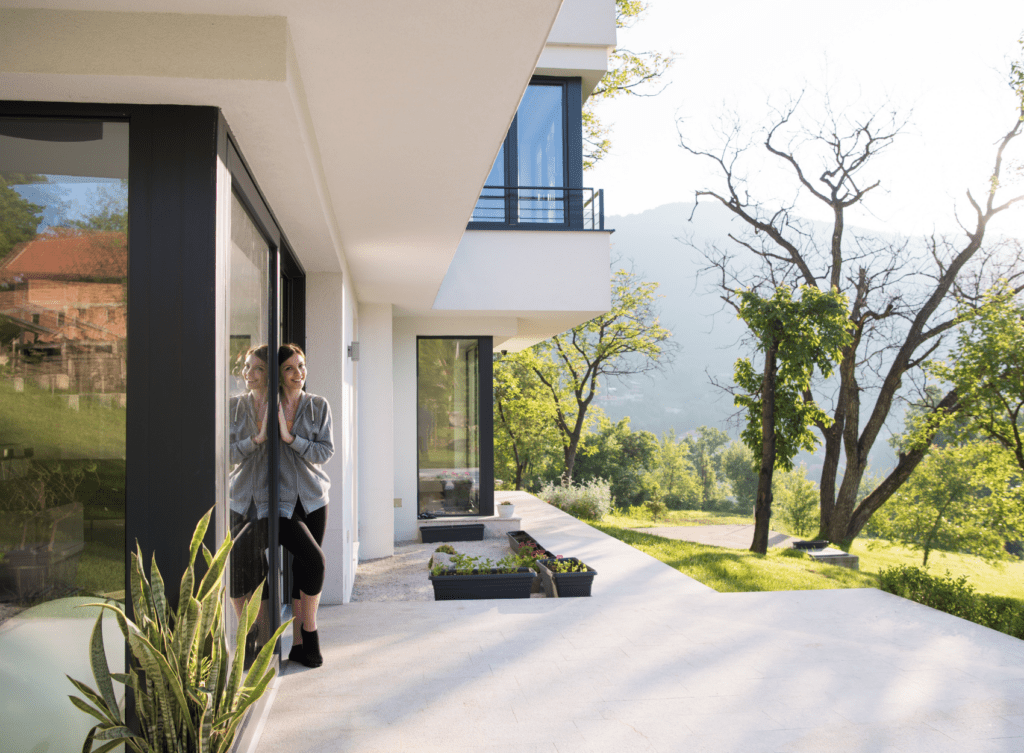
The question, ‘how long does it take to build a custom home,’ deserves more than a short answer! While estimates range from 15 to 36 months for the entire process, it’s essential to recognize the complexities involved. The truth is, you’re in for a wild ride – but one of the most rewarding experiences of your life.
If you’re looking for an experienced builder, or the perfect place to build your home, reach out at 801-639-0944. We wish you the best of luck on your journey!




